Flutter, Google’s open-source UI toolkit, continues to evolve and support developers in building high-quality, cross-platform applications. As the Flutter ecosystem grows, so do the number of tools and resources available to streamline the development process. Whether you’re a seasoned Flutter developer or just getting started, having the right tools can significantly enhance your productivity and efficiency.
Here’s a roundup of the 15 best essential Flutter developer tools you should consider using in 2024:
1. Flutter SDK
The core of Flutter development, the Flutter Software Development Kit (SDK) provides everything you need to create and manage Flutter applications. It includes the Flutter framework, Dart language, and necessary libraries.
- Key Features: Hot reload, a rich set of pre-designed widgets, and a command-line tool for building and running Flutter apps.
2. DartPad
DartPad is an online editor for Dart and Flutter that allows you to quickly experiment with Flutter code without setting up a local development environment.
Key Features: Live code editing, instant preview, and code samples for learning and experimentation.
Flutter is one of the most reliable and popular software development kits available today. It allows you to develop applications for web, desktop, and embedded platforms using a single codebase.
3. Flutter DevTools
Flutter DevTools is a suite of performance and debugging tools for Flutter applications. It integrates with your IDE to provide insights into your app’s performance and debug issues effectively.
- Key Features: Widget inspector, performance view, and memory profiler.
4. Visual Studio Code (VS Code)
VS Code is a popular code editor that supports Flutter development through the Dart and Flutter extensions. It provides features such as IntelliSense, debugging, and Git integration.
- Key Features: Rich plugin ecosystem, customizable interface, and integrated terminal.
5. Android Studio
Android Studio is an integrated development environment (IDE) that supports Flutter development. It offers advanced features like code analysis, refactoring, and a powerful emulator.
- Key Features: Built-in Flutter and Dart support, device emulator, and project templates.
6. Codemagic
Codemagic is a CI/CD tool designed specifically for Flutter apps. It automates the build, test, and deployment processes, making continuous integration and delivery seamless.
- Key Features: Automated builds, integration with various source control systems, and deployment to multiple platforms.
7. Firebase
Firebase provides a suite of cloud-based tools and services that integrate well with Flutter, including real-time databases, authentication, analytics, and cloud storage.
- Key Features: Real-time data syncing, user authentication, and push notifications.
8. Sentry
Sentry is an error tracking and monitoring tool that helps developers identify and resolve issues in their Flutter applications. It provides real-time error reporting and performance monitoring.
- Key Features: Real-time error tracking, performance monitoring, and detailed issue reports.
9. FlutterFlow
FlutterFlow is a no-code development platform for building Flutter applications visually. It’s ideal for rapid prototyping and creating apps without writing extensive code.
- Key Features: Drag-and-drop interface, integration with Firebase, and export to Flutter code.
10. Riverpod
Riverpod is a state management library for Flutter that offers a modern and flexible approach to managing app state. It’s an improvement over Provider with additional features and better performance.
- Key Features: Strongly-typed providers, improved performance, and better debugging support.
11. GetX
GetX is another popular state management library that provides a combination of state management, dependency injection, and route management.
- Key Features: Simple API, reactive state management, and minimal boilerplate code.
12. Lottie
Lottie is a library for rendering animations in Flutter apps using JSON files created with Adobe After Effects. It helps in adding complex animations with minimal impact on performance.
- Key Features: High-quality animations, small file sizes, and smooth performance.
13. Rive
Rive is a powerful tool for creating interactive animations and real-time graphics in Flutter apps. It allows designers to create animations that can be controlled programmatically.
- Key Features: Interactive animations, real-time control, and design-to-code workflow.
14. Flame
Flame is a lightweight game engine for Flutter that simplifies the process of creating 2D games. It provides essential game development features and integrations.
- Key Features: Easy-to-use API, support for game loops, and collision detection.
15. Mockoon
Mockoon is a tool for creating mock APIs quickly. It helps in simulating backend responses and allows developers to work on the frontend without waiting for the actual backend to be ready.
- Key Features: Easy setup, customizable endpoints, and integration with Flutter apps for testing.
Conclusion
The Flutter ecosystem in 2024 offers a wide range of tools and resources that can significantly enhance your development workflow. From the core Flutter SDK to advanced tools for CI/CD, state management, and animation, these tools can help you build high-quality, efficient, and engaging Flutter applications. By leveraging these essential tools, you can streamline your development process, improve productivity, and deliver better results.
Whether you’re developing a new app or optimizing an existing one, incorporating these tools into your workflow will help you stay ahead in the rapidly evolving world of Flutter development.




